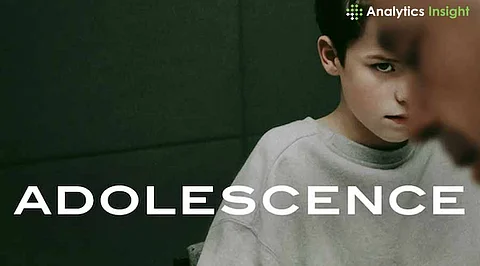

Netflix's new British miniseries titled Adolescence dives deep into the teenage world of social media, online subcultures, and rising alienation. Co-directed by award-winning actor Stephen Graham and award-winning writer Jack Thorne, this four-part drama holds up to scrutiny the immense pressures that can act against adolescents-those pressures that can be dangerous and, at their most extreme, influence them. With mesmerising performances, haunting cinematography, and a thought-provoking narrative, Adolescence entertains, unsettles, and starts a dialogue.
The series centers on the Miller family, whose normality is destructed when 13-year-old Jamie Miller is arrested for the murder of his classmate, Katie Leonard. The opening shot is a stomach punch: a peaceful suburban morning pierced by the sound of police officers arriving in force, storming into the Miller home and arresting Jamie as his parents, Eddie (Stephen Graham) and Manda Miller (Christine Tremarco), stand in shock.
As the investigation continues, Jamie states firmly that he is innocent. “I have done nothing wrong,” he says. But as the layers begin to be peeled back, the storyline tends to turn a little darker, for Jamie did indeed fall under a very online subculture that celebrated misogyny, violence, and extreme ideologies. The series painstakingly reconstructs the events leading to the crime, in a deeply painful and at once deeply introspective gaze on childhood in the electronic age.
Another thing that is really impressive in Adolescence is its innovative cinematographic style. All four hour-long episodes are shot to look like a single, uninterrupted take, a bold style that plunges viewers into an almost claustrophobic realism. Director Philip Barantini, who has worked on high-tension dramas, provides a visceral, relentless experience that hooks viewers while heightening the psychological intensity of the narrative.
Jack Thorne's dialogue is just as remarkable, written raw and naturalistically; it avoids melodrama by allowing the harsh reality of the essence to speak for itself. It does not shy away from serious topics, issues of peer pressure, radicalisation, and family communication, dealt with in a sensitive and nuanced manner.
The cast gives impressive performances, and young newcomer Owen Cooper takes the lead as Jamie Miller. His performance of a troubled but severely confused teenager is hauntingly real. Stephen Graham, as usual, adds depth and gravitas to his part as Jamie's father, a man torn with guilt, denial, and desperate hope that his son is innocent. Christine Tremarco, who plays Jamie's mother, gets across the seething despair of a woman as her family breaks down around her.
Ashley Walters, who plays DI Luke Bascombe, is another winner, playing the detective who tries to unravel truth from lies, social pressures, and online breadcrumbs.
Adolescence has garnered widespread critical acclaim and high ratings ever since its initial release.
Rotten Tomatoes: 100 percent critical approval rating, emphasising its social and cultural relevance.
IMDb: A rock-solid 8.4/10 from thousands of user ratings.
The Guardian dubbed it “one of the most intense crime dramas of the decade,” while The Post NZ called it “a taut, thought-provoking, and sometimes terrifying portrait of contemporary teenage life.
Hindustan Times called it “gripping, unrelenting, and deeply disturbing,” crediting Owen Cooper's performance with “one of the most haunting depictions of adolescent vulnerability in recent television.”
Beyond just its storytelling prowess, Adolescence is a social commentary concerning the shadowy side of cyberspace. It raises the question of how young minds become radicalised, influenced, and conditioned by incidents on the web. The show compels audience members—particularly parents—to wake up to unpalatable facts about how much (or how little) they understand their kids' lives on the web.
With the rising cyber influence, the series becomes a wake-up call to make society realise and confront the evil lurking in so-called innocuous online environments. Adolescence isn't about this single tragic crime; it's about the wider system that lets such tragedies occur.
There aren't many TV shows as addictive as Adolescence, with cerebral complexity and social awareness. An exquisite narrative craftsmanship, outstanding acting, and intense scrutiny of the hearts of current youth define Adolescence. This is not only a crime television show; it's a cautionary tale, a condemnation of our era, and a pleading cry for soul-searching.
No matter if it's for the terrific performances, the amazing storytelling, or the appalling truths that it exposes, Adolescence is one of those series that lingers long after the end credits roll.
